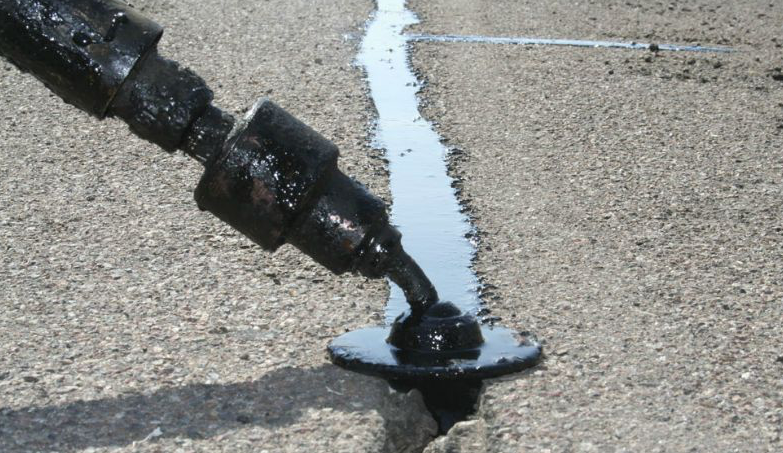Secure Surfaces with Professional Asphalt Sealing: Cold Mix Essentials
Secure Surfaces with Professional Asphalt Sealing: Cold Mix Essentials
Blog Article
Cold Mix Asphalt Vs. Hot Mix Asphalt: Which Is Right for You?

Composition Differences
Cold mix and hot mix asphalts vary considerably in their structure, with distinct features that affect their efficiency and applications. Cold mix asphalt is generated by emulsifying the asphalt binder with water and an emulsifying agent before mixing it with aggregate. This approach allows for the asphalt to be convenient at lower temperature levels, making it excellent for short-term repair work and for use in chillier climate problems. Hot mix asphalt, on the various other hand, is produced at high temperatures, normally between 300-350 ° F, which assists to accomplish better compaction and a much more durable last item. The warm mix asphalt manufacturing procedure entails warming the accumulation and asphalt binder individually prior to incorporating them at the asphalt plant.
Moreover, chilly mix asphalt tends to be less thick and much more versatile than warm mix asphalt. This versatility makes it far better fit for locations with greater degrees of movement, such as driveways or roadways with hefty traffic. On the other hand, warm mix asphalt is known for its high toughness and resistance to rutting and splitting, making it a preferred choice for freeways and high-traffic roadways where long life is essential.
Installation Process Differences
The process of setting up cool mix and warm mix asphalt shows significant variances in their demands and procedures. In contrast, warm mix asphalt requires a much more elaborate installation procedure. Due to the home heating requirements, hot mix asphalt installments are typically brought out by specialists with specific tools, guaranteeing a much more permanent and structurally sound outcome.
Resilience and Durability Aspects
When considering asphalt choices, durability and long life are vital factors to examine for lasting pavement performance. Hot mix asphalt (HMA) is recognized for its exceptional toughness and long life.
In terms of longevity, HMA normally exceeds CMA because of its premium strength and resistance residential or commercial properties. HMA sidewalks have a longer solution life, calling for much less frequent repair services and upkeep, which can convert to cost savings over time. In addition, HMA pavements are much more quickly adjustable to fulfill details project requirements, additionally enhancing their resilience.
Cost Factors To Consider
Thinking about the financial implications is an important aspect when assessing the option between hot mix asphalt (HMA) and cold mix asphalt (CMA) for pavement jobs. While the preliminary expense of hot mix asphalt is normally higher than that of cold mix asphalt, HMA typically provides a more cost-effective option in the long run due to its exceptional durability and long life.
In enhancement to material costs, it's vital to consider the expenditures linked with setup and maintenance when contrasting HMA and CMA. Eventually, the choice in between HMA and CMA should take into account not simply the first price however likewise the lasting economic implications to determine the most affordable choice for the specific pavement project.
Environmental Influence Comparison
Comparison Learn More Here of the ecological effects in between hot mix asphalt (HMA) and chilly mix asphalt (CMA) discloses unique distinctions in sustainability practices. HMA manufacturing calls for high temperatures, resulting in raised power intake and greenhouse gas emissions. The procedure also launches unstable organic compounds (VOCs) and dangerous air pollutants (HAPs) right into the ambience. In contrast, CMA is generated and applied at reduced temperatures, lowering energy usage and discharges significantly. The lower manufacturing temperature levels of CMA lead to decreased gas consumption and lower degrees of carbon dioxide emissions, making it an extra ecologically pleasant choice.
Additionally, the use of CMA usually includes reusing existing asphalt sidewalk, promoting source conservation and reducing the amount of waste sent out to land fills. This reusing element further enhances the sustainability of CMA compared to HMA. Overall, when considering the environmental impact, CMA becomes a more ecologically sustainable option because of its reduced power requirements, lowered discharges, and the potential for reusing existing products. By choosing for CMA use this link over HMA, road construction jobs can add favorably to ecological conservation initiatives.
Final Thought
In verdict, the selection in between cold mix asphalt (CMA) and hot mix asphalt (HMA) relies on different elements such as structure, setup process, sturdiness, durability, cost, and ecological impact. cold mix asphalt. While CMA provides a quick and cost-efficient solution for minor repair services, HMA makes sure exceptional resilience and longevity for rush hour locations. Consider these factors carefully to establish which kind of asphalt is the right choice for your paving needs

Thinking about the economic ramifications is a critical element when evaluating the choice between hot mix asphalt (HMA) and cool mix asphalt (CMA) for pavement projects. While the preliminary check here price of hot mix asphalt is commonly greater than that of chilly mix asphalt, HMA frequently offers an extra cost-effective service in the long run due to its superior sturdiness and durability. angle parking.Comparison of the ecological impacts between hot mix asphalt (HMA) and chilly mix asphalt (CMA) discloses distinctive differences in sustainability techniques.In final thought, the selection between chilly mix asphalt (CMA) and hot mix asphalt (HMA) depends on various variables such as make-up, installment procedure, durability, durability, price, and environmental effect
Report this page